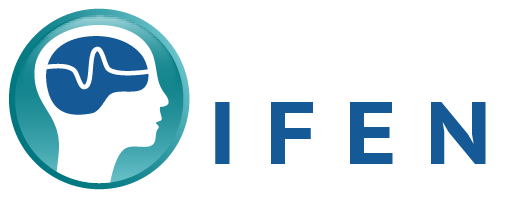ERP in clinical practice and research - Athens
Beschreibung
Event-related potentials (ERP) recorded from the human scalp are voltage fluctuations associated in time with external or internal events (e.g., stimulus, response, decision making, etc.). ERPs are extracted from ongoing EEG using filtering and signal averaging. Analysis of ERP components is one of the most informative dynamic methods of investigation and monitoring of information processing stages in the human brain. Characteristics of ERP components reflect sensory perception and higher level processing including attention, inhibition, error monitoring, and other mental and emotional processes. ERPs provide a method of studying cognitive and affective processes in typical subjects, as well as a sensitive functional diagnostic instrument to assess abnormalities in neuro- and psychopathologies. ERP technique represents an important tool for brain research in psychiatry, as many psychiatric diseases correlate with certain altered patterns of ERPs. Such ERP alterations can serve as valid biomarkers for functional diagnostic or for better understanding of the cognitive functions which are disturbed in psychiatric and neurologic disorders. Application of ERPs in neuro- and psychiatric treatment research is an approach aimed at validation of specific ERP measures as sensitive functional outcomes of neuromodulation interventions such as neurofeedback. In addition to more traditional qEEG techniques, where EEG is assessed during resting conditions with eyes closed and eyes open, there is a recent trend towards a wider usage of ERP methodology.
The workshop has focus on clinical applications and research of ERPs and their specifics.
![]()
Early booking discount:
When booking and payment
until up to 6 weeks before the seminar starts
you pay only 600,00 €,
after 650,00 €.
HOW DOES THE EARLY BOOKING DISCOUNT WORK?
Please transfer the early bird price to our account and inform us about the payment. After timely receipt of payment you will receive a modified invoice.
Target group:
Physicians, Psychiatrists, Psychotherapists, Occupational Therapists, Researchers, Coaches
Equipment:
You don´t need own equipment to bring with you, there is enough equipment available for testing.
Which equipment is needed? This workshop is neutral of platform. We especially invite owners of a Brainmaster System (Atlantis 2x2, Atlantis 4x4, Discovery 24e, Discovery 20)
Curriculum
Day 1
- Methods of EEG recording and montage
- Artifact correction using different tools (e.g., ICA, EOG, EMG artifacts)
- Distinguishing pathological EEG patterns by means of visual inspection and automated tools
- ERP: Recording of evoked potentials, stages of pre-processing of EEG (filtering, segmentation, averaging, baseline correction, rereferencing)
- Nomenclature and labeling of ERP components (P50, N100, N200, P300, N400)
- Exogenous (early) and endogenous (late) ERP components
- Difference waves (e.g., Mismatch Negativity, MMN)
- Perceptual, cognitive & emotional processes instigated using ERP
- Response locked ERP (Error-related Negativity and Positivity, ERN/Pe)
- Slow Cortical Potentials (CNV, Bereitschaftspotential, LRP)
Day 2
- Most popular ERP tasks (oddball, Go-NoGo, CPT, Stroop, flanker, cue reactivity, etc.)
- Types of ERP tasks (attention, inhibition, interference, emotional bias, facial expression, etc.) and inferences using ERP components
- Relevant Tasks/Stimulus presentation - preparation with CAPITO
- Specifics of stimulus modality (auditory, visual, audio-visual, pictorial, verbal, etc.)
- Most important methodological issues in ERP components amplitude and latency scoring and statistical analysis
- ERP dipole source localization methods (BESA, ASA, CURRY)
- Association of ERP components with functioning of brain systems, functional significance of specific ERP components
- Supporting diagnosis of brain disorders with ERP biomarkers
- ERP characteristics typical for ADHD, autism, PTSD, schizophrenia, substance use disorder, mood disorders, Parkinson, etc.
- ERP in forensic studies (lie detectors)
- Normative database for ERP (e.g., HBI)
Day 3
- Introduction to methods of neurotherapy & neurofeedback protocols (Theta/beta ratio training, SMR Training, Alpha-theta training, Z-Score training, QEEG-guided neurofeedback, SCP training)
- Application of ERP biomarkers as neurofeedback and neuromodulation (e.g., rTMS, tDCS) intervention outcomes
- Generating illustrations (charts, 2D,3D maps), interpreting ERP results
- ERP studies publication preparation guidelines
- ERP and evoked and induced EEG oscillations
- Review of most popular ERP recording equipment and software
- Review and recommendation of literature and classical references relevant to ERP analysis and interpretation in clinical practice and cognitive neuroscience research
Subject to change





